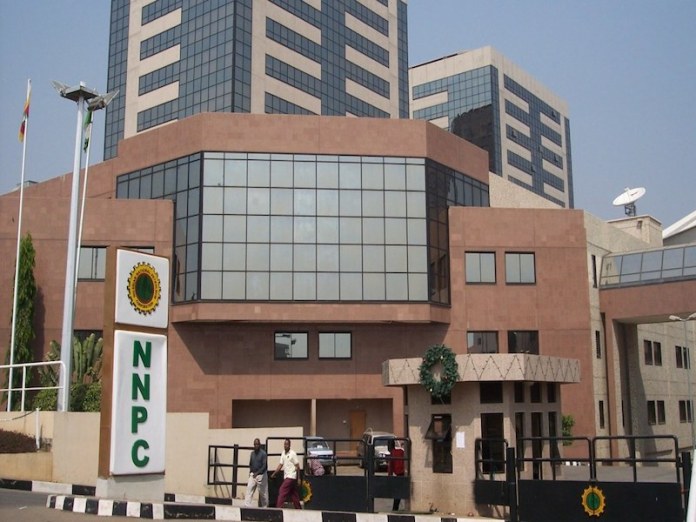- NNPC, Chevron, Total to Build Two Power Plants
The Nigerian National Petroleum Corporation has said it has engaged its joint venture partners, Chevron and Total, to build power plants in Obite and Agura.
The Group Managing Director, NNPC, Dr. Maikanti Baru, stated this at the ongoing Offshore Technology Conference in Houston, Texas, United States.
The GMD, who was represented by the Chief Operating Officer, Gas and Power, Mr. Saidu Mohammed, was quoted to have said in a statement, “Essentially, the NNPC has been there. Many people don’t know that the NNPC has been part of the power sector. We supply steadily about 1,000 megawatts from Afam and Okpai, two of Nigeria’s most reliable power plants, serving as one of the cheapest sources of power today in the country.”
Baru said the NNPC’s role in the power sector would be enhanced with the completion of the power plants that it had started and most especially the three mega plants in Abuja, Kaduna and Kano, with combined capacity of 3,000MW.
According to him, the NNPC is attending the OTC 2017 in order to attract potential investors and showcase its efforts at transforming into a full-fledged energy company.
The GMD also stated that the country’s refineries in Warri, Port Harcourt and Kaduna were currently producing about 12 million litres of Premium Motor Spirit, otherwise known as petrol, and Automotive Gas Oil, popularly referred to as diesel, on a daily basis.
According to him, the production of the white products by the refineries has led to stability and availability of the commodities across the country.
He also stated that the 2019 target set by the NNPC to exit the importation of PMS was still achievable.
“We load out at least five to six million litres of PMS daily and about that same quantity of AGO daily from the three refineries. That is part of what is making the PMS market in Nigeria stable today. We believe that the set target of exiting PMS importation in 2019 is achievable,” Baru stated.
He, however, noted that because the rehabilitation of the refineries had been hampered by lack of regular turn around maintenance over the years, it would take more years to get them fully back to their nameplate capacities.
Meanwhile, the Federal Government said it had released a total of $400m as part payment for the cash call arrears owed international oil companies for the development of joint venture assets last year.
The nation’s oil and gas production structure is split between JV onshore and in shallow waters with foreign and local companies, and Production Sharing Contracts in deep-water offshore.
The NNPC owns 55 per cent of the JVs with Shell and 60 per cent of all the others, and the JVs are jointly funded by the private oil companies and the Federal Government through the corporation.
The Minister of State for Petroleum Resources, Dr. Ibe Kachikwu, disclosed the part payment in Houston, while speaking to journalists on the sidelines of the ongoing 2017 Offshore Technology Conference.
Kachikwu was quoted by the News Agency of Nigeria as saying that the money was paid to the IOCs last week and that the balance would be defrayed within a year.
He explained that the payment was part of a $1.2bn cash call debt owed the IOCs in 2016, adding that it was different from the discounted $5.1bn cash call arrears it negotiated in December last year with the oil majors.
The minister said that the oil companies insisted that the money needed to be paid completely because they could not add that to the $5.1bn.
“We eventually agreed to pay several tranches; $400m out of that for the first tranche and then, the remaining $700m paid in monthly instalments for a period of one year. In other words, that will roughly be about $60m or $70m every month after the first $400m,” the minister added.

 Billionaire Watch3 weeks ago
Billionaire Watch3 weeks ago
 Startups4 weeks ago
Startups4 weeks ago
 News4 weeks ago
News4 weeks ago
 News4 weeks ago
News4 weeks ago
 Bitcoin4 weeks ago
Bitcoin4 weeks ago
 Naira4 weeks ago
Naira4 weeks ago
 Forex3 weeks ago
Forex3 weeks ago
 Treasury Bills4 weeks ago
Treasury Bills4 weeks ago

























